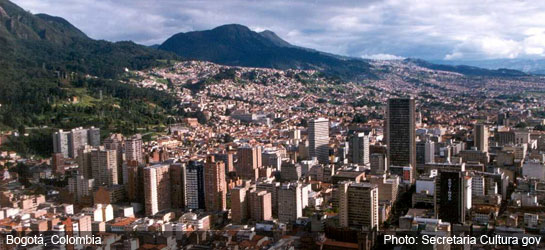
As Bogota’s business climate warms up, a feisty cohort of entrepreneurs is struggling to develop a thriving startup ecosystem in the Colombian capital even though challenges still loom.
“I would say we are at the beginning of a wave. I’m sure it is a great wave coming for entrepreneurship here and I’m ready to surf it,” Camilo Jimenez, an entrepreneur who rents a co-working space designed to connect entrepreneurs, told Colombia Reports.
But the surf is rough for Bogota. Getting entrepreneurs to trade insight, experience and resources is one of the greatest challenges that the emerging entrepreneurial ecosystem faces.
“It’s hard for Colombians to share their ideas,” observes Juan Tejada, an aspiring entrepreneur and organizer behind Startup Criollo, an event that incubates university students’ startup ideas.
Young entrepreneurs like Tejada are trying to change that mentality by building a culture of networking events modeled after the sort of mentorship culture that characterizes more developed startup scenes.
“Building community is a must for Bogota,” adds Fernando Hurtado, another Colombian entrepreneur with an early-stage startup who was inspired to contribute to building up Bogota fledgling scene after he attended an Entrepreneurship Immersion Training Camp hosted by YouNoodle’s CEO, Rebeca Hwang, in the Silicon Valley earlier this year.
Another rough patch for entrepreneurs around the city is a scarcity of funding. Only a few angel investors and venture capital firms have chosen to turn their attention toward the Colombian capital’s nascent startup scene, and therefore young entrepreneurs find trouble accessing later stage funding.
But in spite of the challenges, the World Bank’s Doing Business 2013 report on regulations for small and medium-sized enterprises casts optimism on Colombia, reporting a more efficient and friendlier business environment for startups since 2003.
Doing Business reports that reforms cut out lengthy registration procedures, reduced the cost of starting up from 28% of income per capita to 8% and shortened the time needed for starting a business to 14 days from 60 in 2003.
And Colombian entrepreneurs are not the only ones who are growing attracted to starting up in Bogota.
Gustavo Maggi, an engineer-turned-entrepreneur from Venezuela, says he is impressed by the support and opportunities that he discovered when he came to Bogota, such as entrepreneurial development programs with Bogota Emprende, Innova, and Unidades de Emprendimiento.
“Bogota is an emerging market with many opportunities,” says Maggi, drawing the comparison to his native Caracas. But he acknowledges the trickiness of the Colombian market’s uncertainty too. “Colombia isn’t a market that adjusts itself easily to your initiatives. You have to adjust your initiatives to her.”
Bogota emerging startup climate has even grown friendly enough to the extent that Startup Weekend, a Seattle-based incubator supported by the Kauffman Foundation, chose Bogota as one of its November destinations.
Ana Carolina Pereira, an organizer behind the event, is determined about Bogota entrepreneurial flicker when she says, “we think we can turn our self into as much of a success story as the tech entrepreneurship communities in Singapore or Israel.”

